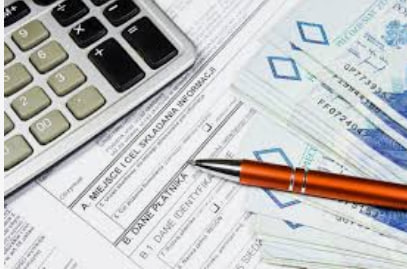How to determine your tax residence in Poland?
Determining tax residence is a key issue for everyone who works or lives in Poland. This status determines how and where you will pay taxes, as well as what benefits and obligations you will have. In this article, we will look at the main aspects of determining tax residency in Poland and how it can affect your financial situation.
What is tax residence?
Tax residency is a legal status that determines in which country a person must pay taxes on their global income. For Poland, this means that tax residents have to pay taxes on all their income, regardless of whether it was earned in Poland or abroad.
The main criteria for determining tax residence in Poland are:
- The center of vital interests is located in Poland
- Stay in Poland for more than 183 days during the tax year
- Permanent residence in Poland
- Having close personal or economic ties with Poland
To accurately determine your status, it is recommended to apply for a legal analysis of a situation. A professional lawyer will be able to evaluate all aspects of your stay in Poland and provide a well-founded opinion.
183 days criterion
One of the key criteria for determining tax residency is staying in Poland for 183 days or more in a tax year.
- Important points regarding the 183-day criterion:
- Days are counted cumulatively, not necessarily consecutively
- All days of physical presence in the country are taken into account
- Even short-term trips outside Poland do not interrupt this period
- The tax year in Poland coincides with the calendar year
If you have any doubts about the correctness of the calculation of days, you should use the service of lawyer's consultation. A specialist will help you correctly calculate the duration of your stay in Poland and assess whether you meet the 183-day criterion.
Question
Are the days spent in Poland as a tourist taken into account when determining tax residency?
Answer
Yes, days spent in Poland as a tourist are also taken into account when determining tax residence. For the purposes of calculating 183 days, the actual physical presence of a person in Poland is important, regardless of the purpose or status of stay. However, it is important to understand that the mere fact of staying in the country for more than 183 days is not the only criterion for determining tax residence. Other factors, such as the center of vital interests, are also taken into account. In order to accurately determine your status, it is recommended to apply for a legal analysis of a situation, where a professional lawyer will be able to assess all aspects of your stay in Poland.
Center of vital interests
The concept of “center of vital interests” is key in determining tax residence. It covers personal, social and economic ties of a person with the country.
Factors taken into account when determining the center of vital interests:
- Place of residence of the family (spouses, children)
- Place of work or business
- Availability of real estate in Poland
- Bank accounts and investments in Polish financial institutions
- Participation in the social and cultural life of Poland
For a comprehensive assessment of your center of vital interests, it is recommended to apply for a legal analysis of the documents. A lawyer will be able to analyze all available documents and provide a reasonable opinion on your status.
Dual residency and international agreements
Sometimes a situation may arise when a person meets the criteria for tax residency in two countries at the same time. This is called dual residency and can lead to double taxation.
Steps to resolve dual residency:
Study of the international agreement on avoidance of double taxation
Apply the tie-breaker rules to determine a single residence
Applying to the competent authorities of both countries for clarification
In such complex cases, it is strongly recommended to use the service of a legal opinion of a lawyer. A professional lawyer will be able to analyze your situation in the context of international agreements and provide recommendations for further action.
Change of tax residence
Changing your tax residence is an important step that can have significant financial consequences. It is important to approach this issue responsibly and prepare properly.
Steps to take when changing your tax residence:
- Collect all necessary documents confirming the change of status
- Notify the tax authorities of both countries of the change of residence
- Preparation and submission of relevant tax returns
- Settlement of tax liabilities in the previous country of residence
- Familiarization with the tax legislation of the new country of residence
To properly formalize the change of tax residence, it is recommended to use the verification of documents by a lawyer by a lawyer. This will help to avoid mistakes and ensure that all the necessary paperwork is completed correctly.
Question
Do I need to notify the tax authorities of Ukraine about changing my tax residence to Poland?
Answer
Yes, if you are changing your tax residence from Ukrainian to Polish, you need to notify the Ukrainian tax authorities. This is an important step that will help you avoid potential double taxation issues and ensure that your tax obligations are properly fulfilled. The notification process involves submitting an application and supporting documents to the Ukrainian tax authorities. In order to properly prepare all the necessary documents and submit them within the established deadlines, it is recommended to use the service of a lawyer's consultation or a lawyer's service in Poland, which will help you to properly prepare all the necessary papers and avoid possible mistakes.
Consequences of incorrect determination of tax residence
Incorrect determination of tax residence can have serious consequences. This can lead to underpayment or overpayment of taxes, fines and other sanctions by the tax authorities.
- Possible consequences of incorrect determination of residence:
- Additional taxes and penalties
- Imposition of fines for late payment of taxes
- Problems with obtaining tax benefits
- Difficulties in opening bank accounts or obtaining loans
- Potential problems with the law in case of intentional tax avoidance
To avoid these problems, it is important to determine your tax residency in a timely and correct manner. In complicated cases, it is recommended to apply for a legal document analysis service, analysis of documents or a lawyer online service for professional advice.
How to confirm your tax residence
Proof of tax residence may be required for various purposes, such as obtaining tax benefits or avoiding double taxation.
Documents to prove tax residence in Poland:
- Certificate of tax residence issued by the Polish tax office
- Certificate of residence
- Employment contract with a Polish employer
- Documents confirming the ownership of real estate in Poland
- Bank statements from Polish banks
In order to obtain a tax residence certificate and other necessary documents, it is recommended to use the service of a lawyer in Warsaw. A professional lawyer will help you to collect all the necessary documents and properly complete the application for the certificate.
Determining tax residence in Poland is a complex process that requires a careful approach and consideration of many factors. Correct determination of your status is critical for the correct fulfillment of tax obligations and avoiding potential problems with the tax authorities. Incorrect determination of residency can lead to serious financial and legal consequences, including fines, additional tax charges and even criminal liability in case of intentional tax avoidance. Therefore, if you have any doubts about your tax status, it is strongly recommended that you seek professional lawyer's consultation. Legal Marketplace CONSULTANT offers a wide range of services, from lawyer's consultation, legal analysis of documents to full support of the process of determining and confirming tax residency. Don't neglect this important aspect of your financial life - turn to professionals and ensure peace of mind and confidence in the correctness of your tax obligations.



























